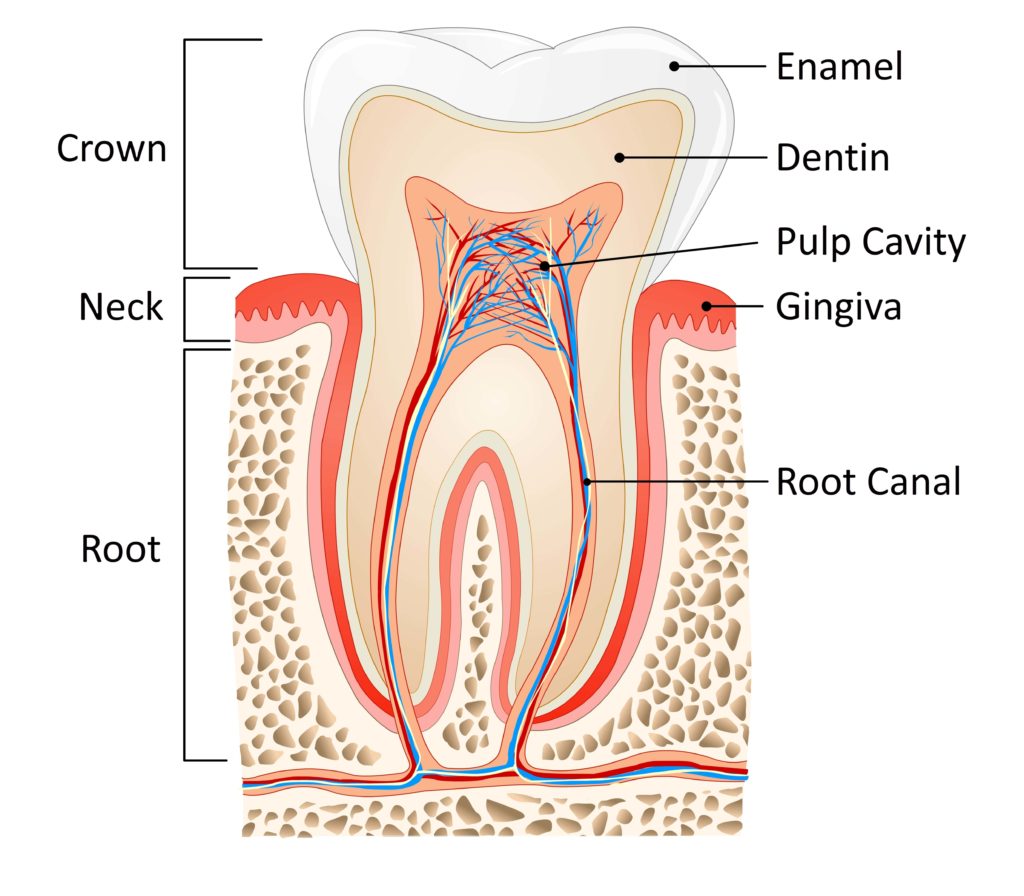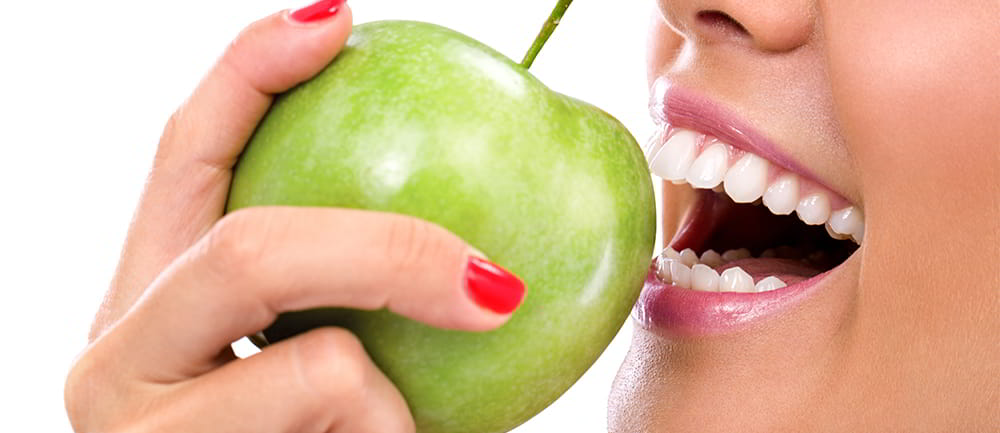You may or may not have heard dentists talking about remineralisation, and what they mean by this when it comes to our teeth, is an important process that happens to our teeth when they begin losing their mineral content which makes them strong in the first place. The tooth enamel is the hard, outer surface of the tooth that protects the insides of the tooth from harm on a day-to-day basis. Located inside the tooth are a variety of more sensitive areas of importance.

The dentine, for example, is the tooth’s secondary layer of defence against any major damage, and it is located underneath the enamel layer. The pulp and the root canal(s) of a tooth are the areas which contain the highest density of blood vessels and nerves which keeps the tooth alive. Not only can damage these areas cause serious pain for someone, but it can also lead to infections and eventually cause the tooth to die away. This is why keeping the enamel strong and resilient is so important.
Everyday erosion
When dentists tell you how strong the enamel is – as it is stated by Mouth Healthy to be the strongest substance of the body – you might wonder why we need to take so care our teeth so often. Aren’t our teeth safe from harm? Well, it isn’t that simple, and our teeth are actually at risk of serious damage every day of our lives. The risk we are talking about is the risk of demineralisation. Due to the placement of our teeth and how they are arranged, our teeth are in a constant state of demineralisation every time we drink or consume food.
Demineralisation happens when the bacteria and plaque from around the teeth and gums react with the sugars in food and drinks. This reacts and leaves acid in the mouth which, if left, will begin to destroy the minerals in the enamel. This is why dentists recommend avoiding a high-sugar diet, as this process is more likely to cause persistent, permanent damage if they are constantly in this acidic environment. Simply put, if the enamel layer erodes too much, it can put your teeth at a much higher risk of serious infection, as the inside of your tooth is no longer being protected the way it should be.
Recovery
Luckily, because our teeth are always in this state of constantly restricted demineralisation, the enamel has built a resistance to this process which is special and unique to enamel itself (Strange et al., 2016).
As Colgate notes, the tooth enamel is kept safe during day-to-day demineralisation with the help of our salvia. That’s right – saliva is the make-or-break when it comes to risking suffering from tooth erosion. It protects our teeth from demineralisation because it is constantly cleaning away debris and bacteria from around the mouth. It also helps by neutralising the acidity in the mouth after consuming sugary foods.
Furthermore, Colgate describes how saliva protects and reinforces the enamel of the teeth. This occurs because the necessary minerals can be found in your saliva, and they are in a state of constant exchange with the tooth enamel, which gives the enamel its self-repairing properties. Unfortunately, this process is not infinite and there are limits that prevent the enamel from repairing itself all the time. Therefore, our teeth can still be at risk of harm.
If the process of demineralisation occurs too frequently, your body and the remineralisation process cannot catch up fast enough and put your teeth at risk of tooth decay. Dentists, therefore, recommend limiting the amount of sugar in your diet. This not only leads to a healthier lifestyle but will put less stress on the enamel. In addition, fluoride is another mineral that aids the process of remineralisation particularly well, so making sure you brush your teeth twice a day is considered to provide the most effective amount of fluoride for your teeth to stay healthy.
References
- Strange, A et al. (2016). ‘Demineralization-remineralization dynamics in teeth and bone’. International Journal of Nanomedicine, 11. 4743-4763.
Unsure about your dental health? Call your nearest Synergy Dental Clinic and we’ll be happy to help.

